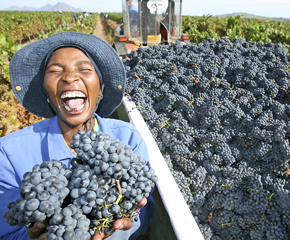Black Economic Empowerment (BEE) in the liquor industry in South Africa is at full pace, particularly with the largest commercial brands throwing their considerable weight behind it.
But perhaps the most heartening integration of the BEE initiative has been in the wine industry. Traditionally a “white” South African industry, the wind of transformation is blowing through the vineyards of the Western Cape – and it is being embraced.
Socially responsible wines
Wine companies are subject to The South African wine industry BEE Charter and Scorecard, to ensure they meet certain government-ordained quotas for black ownership, employment and procurement. To get a sense of the myriad of BEE deals in the winelands, just take a gander at the WOSA ( Wines of South Africa ) website.
It’s hugely encouraging to see so many estate owners getting involved in the process of positively empowering their employees and ensuring the industry becomes more socially responsible. In terms of ownership the wine industry may be behind other industries, with only 1% of companies being black owned, but the investment in people, training and social welfare is where they are making the biggest difference.
With regards to the export arena, British quaffers now have the opportunity to support black owned wines if they choose to. Ses’fikile, founded by three black female entrepreneurs, two of whom were school teachers in the townships and M’hudi, founded by the Rangaka’s, a family of black professionals, are available at Marks & Spencer. Thandi, the world’s first fair trade wine owned by a black workers’ trust, is available alongside a couple of others via websites like ethicalsuperstore.com.
Back in South Africa, the consumer trend is still very much with the traditional and ubiquitous white-owned wine estates. The general public are blind to who owns what, and what wine they consume/buy is largely due to lack of awareness and general apathy. But the drive is on to awaken perception, and should we be paying more attention?
But if we did know, would we care? Would you choose a BEE label over a white-owned one?

